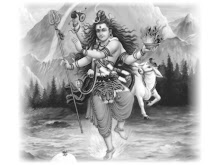Fri, Jun 25 02:23 PM
Washington, June 25 (IANS) Since the Second World War, the use of rape as a weapon of war has assumed strategic importance and is now a deliberate military strategy, argue researchers.
A study in the Democratic Republic of the Congo found that 16,000 rapes occurred in 2008 alone and in South Kivu province, health centres estimate that 40 women were raped in the region daily.
In the UK, 50-70 percent of female asylum applicants were raped, witnessed rape, or have a credible fear of rape.
The effects of rape and sexual violence during war also extend beyond individual victims and are economically, physically, psychologically and culturally devastating for families and communities, say study authors Coleen Kivlahan, volunteer forensic physician for HealthRight International, and Nate Ewigman from the University of Florida.
For example, in recent conflicts, rape has been used as a reward for victory in battle, a boost to troop morale, as punishment and humiliation for both men and women, to incite revenge in opposing troops, to eliminate or 'cleanse' religious or political groups and to destabilise entire communities by creating terror.
Geographical, cultural, religious, political, legal, and behavioural conditions affect the likelihood of the systematic use of rape, explain the authors.
For instance, geographically remote locations allow perpetrators to rape with impunity, while the likelihood that women will be raped, shamed and isolated is increased in cultures with strong traditions regarding virginity, marital fidelity and genital cleanliness.
Religions with strong beliefs about appropriate female clothing and behaviour also increase the risk that women will be falsely accused of adultery and raped as humiliation and punishment, they add.
The international community has mounted a considerable response to the use of rape as a weapon of war, but the authors argue that rape during armed conflict is not simply about military personnel, police or terrorists, said a HealthRight International release.
For example, before 2004, rape assailants in the Democratic Republic of the Congo were primarily affiliated with the military; however, after 2004, civilian rapes increased 17-fold while rapes by armed combatants decreased by 77 percent. 'This pattern suggests a disturbing acceptance of rape among civilians,' they conclude.
'Rape is the result of the lack of dedicated societal attention to the safety, respect, and prosperity of women in peace time as well as in war.'
These findings were published in bmj.com
what does these findings actually prove? respond please.
Saturday, June 26, 2010
Monday, June 21, 2010
vrata
karva chaudh: a vrata to be done for the welfare of husband by a wife. the one doing it isnt allowed to take food or water after sunrise till her husband returns to feed her when the moon rises.
vat savitri: another vrata to be done by wives for the welfare of husbands without food and water till the puja is done.
bhaiya duj: tika/tilak to be put sisters on their brother's forehead. the puja to be done by fasting again.
i am not against fasting or puja but my question to all the bhaktas is why never a husband fasts for his wife and children and keeps vrata................
these vrats will itself show where the position of women lies in the society.
vat savitri: another vrata to be done by wives for the welfare of husbands without food and water till the puja is done.
bhaiya duj: tika/tilak to be put sisters on their brother's forehead. the puja to be done by fasting again.
i am not against fasting or puja but my question to all the bhaktas is why never a husband fasts for his wife and children and keeps vrata................
these vrats will itself show where the position of women lies in the society.
sindoor, bangles, mangalsutra
well a married woman in hindu family must wear these as signs of marriage for the welfare of her family and husband.
but are these only for the welfare of her family? isnt it just a way to identify her as married in the society so that she has a less chance for her independence? independence for the sake of sex, as well as work. whenever a girl marries some imposed responsibilities fall on her. looking after her inlaws, taking care for families, cooking for the husband etc.
my question is why men never keeps a sign of their marriage? isnt it giving them a lots of independence which they can surely misuse?
but are these only for the welfare of her family? isnt it just a way to identify her as married in the society so that she has a less chance for her independence? independence for the sake of sex, as well as work. whenever a girl marries some imposed responsibilities fall on her. looking after her inlaws, taking care for families, cooking for the husband etc.
my question is why men never keeps a sign of their marriage? isnt it giving them a lots of independence which they can surely misuse?
Subscribe to:
Posts (Atom)




